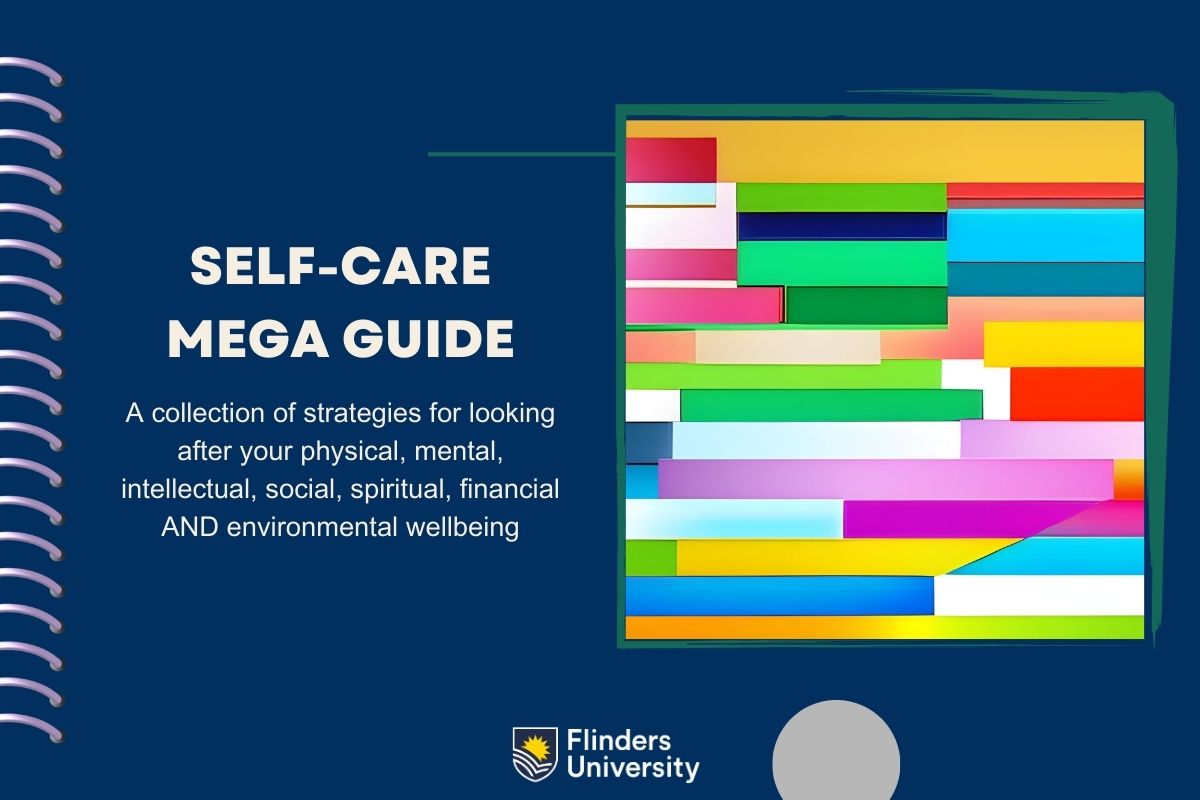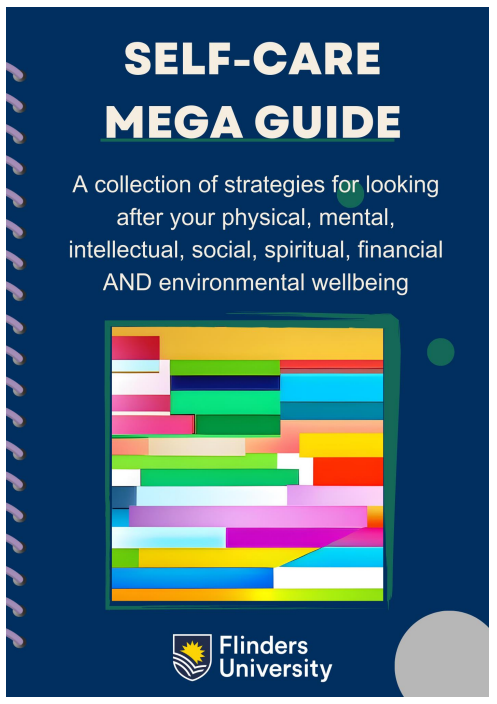
I’ve been collecting self-care strategies for a while now and the current home for them is my Self-care Mega Guide. There is a lot in there and it keeps growing. I don’t expect people to follow all the advice in the guide. Instead I hope to alert people to the range of things that constitute self-care and consider activating a couple in their own life. Last updated 9/5/25 with M.O.S.T goals.
The history of the Self-care Mega Guide stretches back to 2018, when I released my first version. The purpose of that guide (and all subsequent versions) was to alert students to the diverse range of activities that constitute self-care.
Most of us have been told at some point in time that self-care is important. But that doesn’t necessarily mean we’ve been instructed on why that is and what self-care actually involves.
At its simplest, self-care is often reduced down to eat well, move regularly, sleep soundly, stress less and be social. And to be honest, that isn’t the worst summary of self-care.
But in practice, there are lots of ways that we can make investments in ourselves.
‘Self-care is any deliberate/intentional activity we do to look after or improve our physical, intellectual, mental, social, spiritual, financial or environmental wellbeing.’
That is where the Mega Guide comes in.

I’ve been on a bit of a mission to document and categorise, as best I can, the various activities I think fall into the self-care space.
That mission has led to a sizeable document, with many strategies and ideas listed within. Hence the name ‘Mega Guide‘.
I maintain this guide and distribute it to students on the basis that I want you to be both happy and productive. That may sound a little naff but I want for you the same thing I want for all the people in my life that I care about. I want you to have a life filled with meaning and purpose and good relationships and enjoyable and productive work. The guide is intended to literally ‘guide’ you towards those activities I think maximise the likelihood of that happening.
At present, the guide covers 12 self-care strategy areas:
- advanced study skills
- building positive emotions
- managing challenging emotions
- becoming a better thinker
- developing self-awareness and understanding
- searching for meaning, purpose and identity
- building and maintaining supportive relationships
- caring for your body
- modifying your environment
- financial control
- unwinding and recharging
- helping others
I think of it as a series of starting points you might consider if you’ve made the decision to try and work on yourself or your life.
It also contains a section on self-care during difficult times, for when you are confronted by a life challenge that is overwhelming.
Finally, it links to our Service Brochure, so you can learn more about the support resources, programs and services we offer here at Health, Counselling and Disability Services.
The Guide is an ongoing work in progress, meaning that I am always adding to it. If you visit this post, you’ll always get the most up-to-date copy of it.

Gareth, that is wwaaaaaay too much information!
Yeah, you are probably right, but wouldn’t you rather I gave you as much of the self-care picture as possible, so you can make choices that are relevant to the unique challenges facing you?
Let me be clear, the expectation is not that you should be doing everything outlined in this document. I suggest just following through on 1 or 2 at a time and build slowly. You have your whole life to work out what constitutes the right mix of activities for you. The only thing I suggest is that you start now.
Enjoy – and distribute freely!
Click the image to access the latest version.
PS – If you’ve discovered some self-care activities that have worked well for you as a student, I’d love to hear about them. It would be great if future guides included tips from students alongside the tips from me and other mental health professionals.

